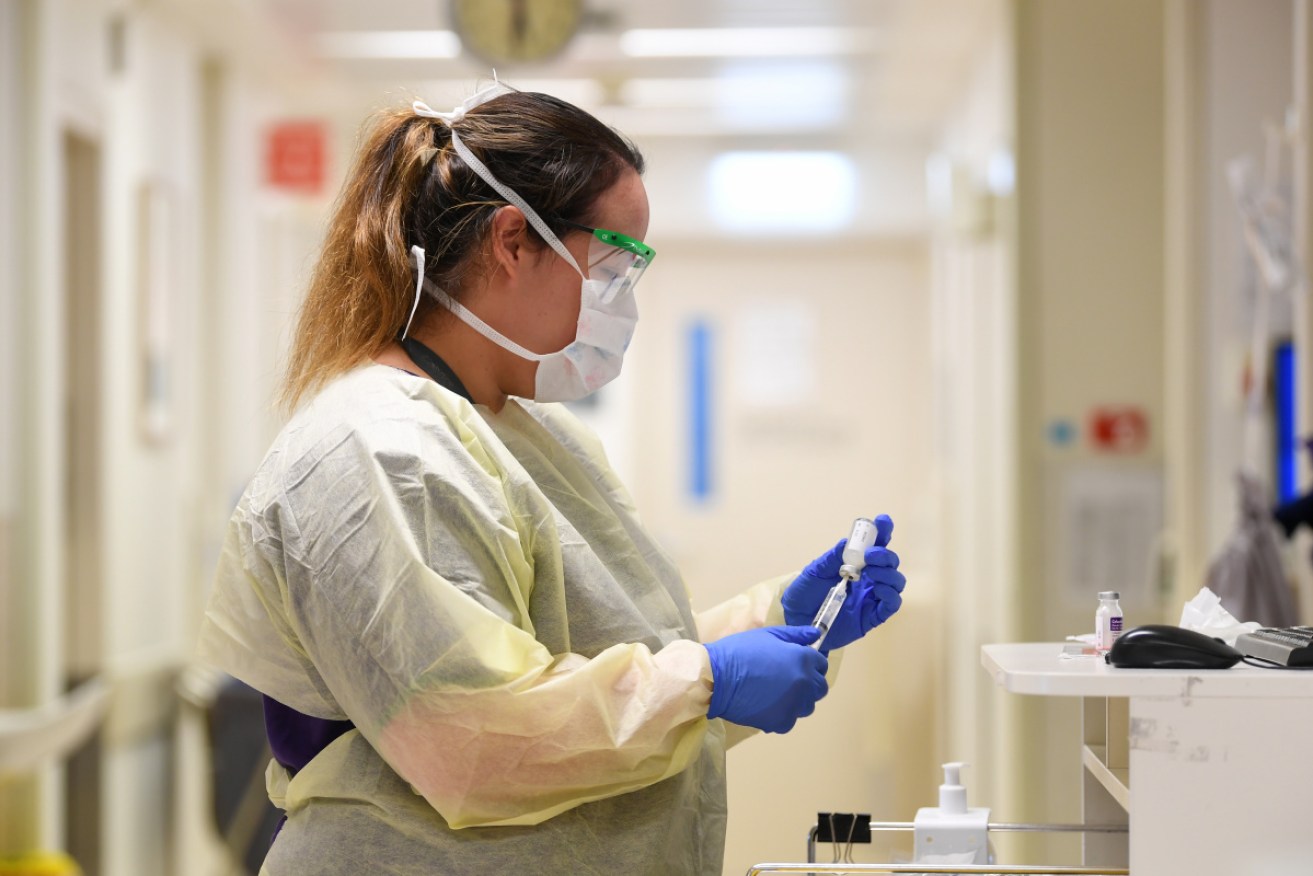COVID-19 drug trial under way in Melbourne

Patients at Victoria's Royal Melbourne Hospital have been chosen to undergo a clinical trial of two existing drugs to treat COVID-19. Photo: AAP
A clinical trial of two existing drugs to treat COVID-19 is underway at Victoria’s Royal Melbourne Hospital.
Patients at the Parkville hospital are the first to be screened for the trial, which uses an existing antimalarial drug and HIV treatment to fight the deadly virus.
There are plans to recruit patients in more than 70 hospitals across the country, as well as 11 hospitals in New Zealand for the trial, dubbed the AustralaSian COVID-19 Trial (ASCOT).
It is being led by Associate Professor Steven Tong from the Royal Melbourne Hospital and the Doherty Institute and partly funded by a $1 million donation from mining magnate Andrew Forrest’s Minderoo Foundation.
There are currently no treatments for COVID-19 but researchers say there are multiple treatment options that may be effective.
Laboratory tests have shown that lopinavir/ritonavir, which is currently used to treat HIV, and hydroxychloroquine, used to treat rheumatoid arthritis and malaria, can stop SARS-CoV-2, the virus that causes COVID-19, in its tracks.
- Related: Is this the magic bullet?
- Related: Recent treatments and problems
- Related: We don’t want another Thalidomide
The World Health Organisation considers both drugs to be promising and has included them in their own worldwide trial, while US President Donald Trump caused a run on hydroxychloroquine earlier this month when he promoted it as a treatment for coronavirus.
More research, however, is needed to be sure they are safe and effective.
“The aim of ASCOT is to test whether using these drugs will prevent patients deteriorating to the point of needing a ventilator in the intensive care unit,” Associate Professor Tong said in a statement on Tuesday.
“We have designed the trial so that it’s responsive and adaptive. This means that if one of the drugs is proving to be effective, we can adapt the trial to focus on that treatment.
“Conversely, if a drug isn’t effective, or is causing severe side effects, we can stop it.”
He said having a coordinated approach both nationally and in New Zealand means many patients participate and evidence can be gathered “as quickly as possible”.
“Ideally, as other potential treatments become available, these can also be tested within the coordinated framework of ASCOT,” Associate Professor Tong said.
Patients will be randomly allocated to different treatments, meaning some will not receive either drug.
“This will allow us to answer whether patients who received a specific drug fare better, worse or the same compared to patients who received a different drug or standard of care,” he said.
The trial is expected to run for 12 to 18 months and as the pace of infections slows in both Australia and New Zealand, researchers are approaching other countries including Singapore to join the trial.
-AAP








